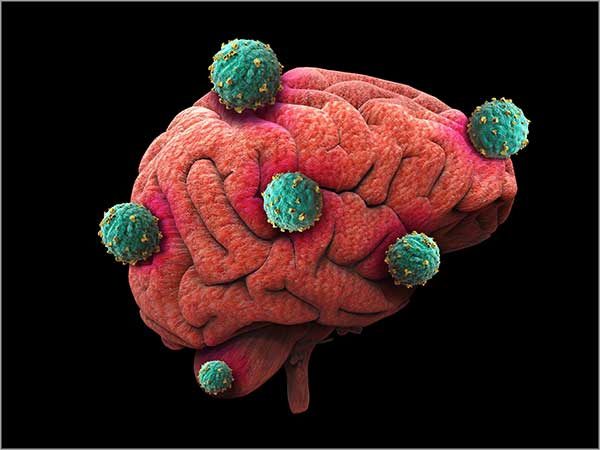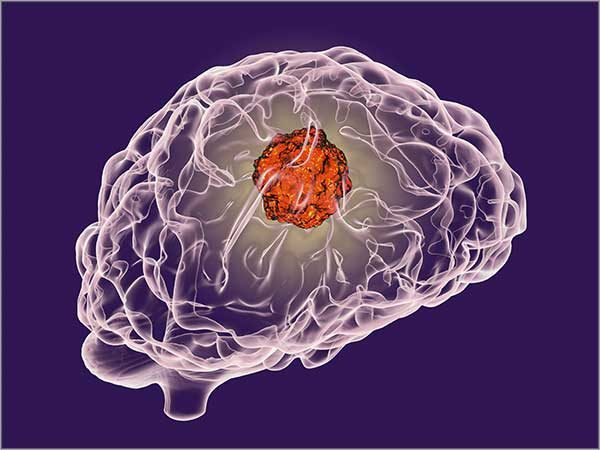Abnormal growth of cells in the brain is known as brain tumours. Not all brain tumours are cancer.
When compared to a malignant tumour, benign tumour is less dangerous. But a benign tumour can press on nearby tissue and cause many problems in the brain.
Primary Brain Cancers
Primary brain tumours originate in the brain. There are various types of cells in the brain. Different tumours arise from each type of cell.

The most common among them are meningiomas, gliomas, vestibular schwannomas, pituitary adenomas, and primitive neuroectodermal tumours (medulloblastomas). The term glioma includes astrocytomas, glioblastomas, ependymomas and oligodendrogliomas.
Metastatic Brain Cancer
Cancerous cells from a primary tumour elsewhere in the body lead to the formation of metastatic brain tumours. The metastatic brain tumour is the most common type of brain tumour.
Causes of Brain Cancer
The exact cause of most brain cancers is unknown. Cancers of the brain have been linked to various environmental toxins, genetic factors, HIV infection, radiation to the head, and cigarette smoking.
Symptoms
Symptoms are not shown by all brain tumours, and some (such as tumours of the pituitary gland) are often not found unless an MRI or CT scan is done for another reason. Symptoms can be caused by:
- A tumour encroaching or pressing on other parts of the brain thereby hindering their normal functioning.
- The tumour or surrounding inflammation causing swelling in the brain.
The symptoms of metastatic and primary brain cancers are similar.
The following symptoms are the most common:
- Weakness
- Headache
- Difficulty walking
- Clumsiness
- Seizures
Other nonspecific signs and symptoms include:
- Change in mental status — memory, concentration, alertness, or attention
- Vomiting, nausea
- Difficulty with speech
- Change in vision
- Gradual changes in emotional response or intellectual capacity
The onset of these symptoms in many people may be missed by both the patient and the family as it will be gradual. At times, however, these symptoms may appear rapidly.
When to Seek Medical Care
If you have any of the following symptoms seek emergency medical help right away:
- Persistent, unexplained vomiting
- The unexplained blurring of vision or double vision, especially on only one side
- Increased sleepiness or lethargy
- Seizure
- A new pattern of headaches
Even though headaches are considered as a common symptom of brain cancer, they may not occur until late in the progression of the disease. Your health care provider may suggest that you go to the hospital if there is any significant change in your headache pattern.
Overview of treatment options available:
Brain Cancer treatment can be done with various approaches depending upon the condition of the patient. The most common approaches are surgery, radiation therapy and chemotherapy.
Meningioma:
Meningioma is a tumour that forms on membranes that cover the brain and the spinal cord that is just inside the skull. The majority of meningioma occurs in the brain. 90% of them are non-cancerous i.e Benign

Pediatric Brain Tumours
Brain tumours that arise in children include astrocytomas, Brain Cell Gliomas, Ependymomas and Optic Nerve Gliomas
Glioma
Glioma is a type of brain cancer in which the tumour occurs in the spinal cord and the brain. Gliomas begin in the glial cells.
Authored By Dr. M. Banupriya MBBS, MDRT, FIAMS, Ph.D, CCEPC (Palliative care), Consultant Oncologist



